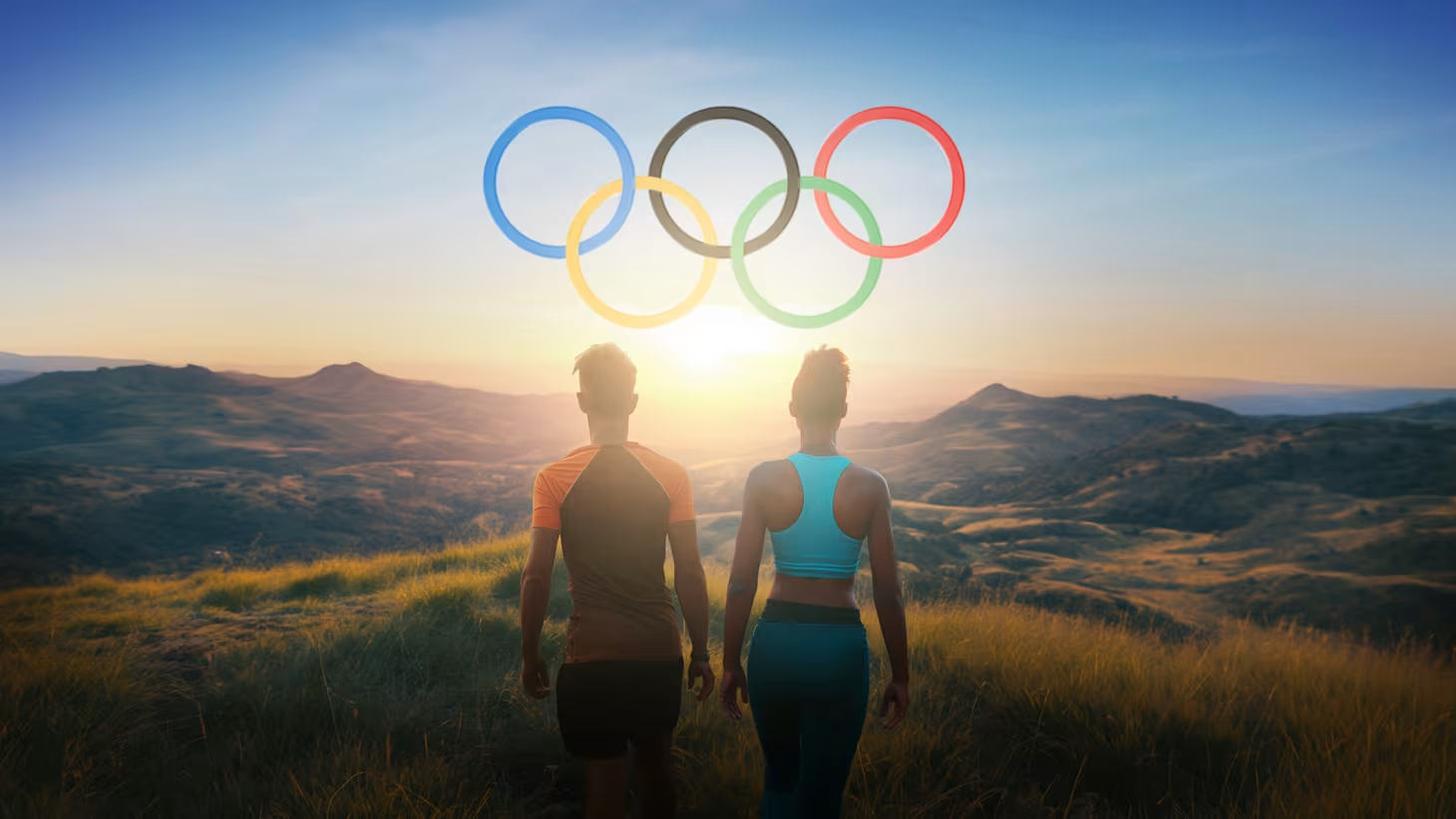At Calcey, we’ve recognized the immense potential and value that can be unlocked with Generative AI (GenAI). Recently, we published a blog on how we’ve unlocked value for our Clients using GenAI across several use cases.
GenAI is all the rage and appears to be going nowhere. The 2024 Summer Olympics in Paris is set to showcase a significant integration of artificial intelligence (AI), particularly Generative AI, in various aspects of the event. This marks a transformative shift in how athletes, coaches, and fans experience the Games. The International Olympic Committee (IOC) has embraced AI through its “Olympic AI Agenda,” which aims to leverage AI’s capabilities to enhance performance, improve logistics, and enrich the viewing experience. Here’s a detailed exploration of how Generative AI is being utilized at the Olympics.

Enhancing Athlete Experience
AthleteGPT: A Personalized Assistant
One of the most valuable applications of Generative AI at the Paris Olympics is the introduction of AthleteGPT, a chatbot designed specifically for athletes. Accessible via the Athlete365 mobile app, this AI-powered assistant will provide athletes with real-time answers to a wide range of questions, from logistical inquiries about venues to information on regulations and schedules. Built on a large language model developed by Mistral AI and Intel, AthleteGPT can quickly sift through thousands of information pages, offering 24/7 support to athletes during the Games.
Protection from Online Abuse
A brand new IOC Assistant Chatbot, powered by Intel’s Gaudi 2 generative AI platform, can answer match and regulation questions for participants. Using machine learning, it is being used to create a safer environment for athletes. The AI-powered system will monitor thousands of accounts on all major social media platforms and in 35+ languages in real-time. Any identified threats will be flagged, so that abusive messages can be dealt with effectively by the relevant social media platforms – in many cases before the athlete has even had the chance to see the abuse.
Performance Analysis and Training
Generative AI is also set to revolutionize training and performance analysis. AI technologies will provide athletes and coaches with personalized insights, helping them to optimize their training regimens and recovery strategies. Intel’s and ai.io’s 3D athlete tracking (3DAT) technology uses AI to track 21 points across the human body to render its precise physical movement, providing “all the biomechanical insights that coaches look for” in elite athletes. Intel’s 3DAT technology, originally developed to showcase the potential of AI at the Tokyo 2020 Olympic Games and featured prominently at the Beijing 2022 Winter Olympic Games, has been used to analyze professional and amateur athletes across many sports.
Improving Broadcasting and Viewer Engagement
Enhanced Viewing Experiences
Intel, the Official Worldwide AI Platform Partner of the Olympic and Paralympic Games in Paris 2024 unveiled several AI experiences built on Intel hardware and software to facilitate next-generation engagement for spectators, athletes, organizers, and fans worldwide The key AI implementations include an immersive sports experience that will allow fans to experience innovative technology used to measure athletic potential. It is also the first Olympics to showcase an end-to-end 8K broadcasting experience, along with advancements in universal accessibility at selected Olympic and Paralympic facilities.
Additionally, NBC’s Peacock service will use AI to enhance its web and mobile event coverage. Using 5,000 hours of live coverage, it will be used to replicate the voice of American sportscaster Al Michaels, who has over 50 years of experience in the field. Every day, 10-minute highlight tracks customized to each user’s topic and preferred sport will be created using his voice and marketed as “Your Daily Olympic Recap.“

AI-Driven Statistics
In order to deliver faster, more relevant, and smarter data during the Olympic Games, OBS will collaborate with OMEGA (the official timekeeper of the games) to unleash the potential of AI. For example, intelligent stroboscopic analysis across diving, athletics and artistic gymnastics will enable viewers to better understand the movements and biomechanics of the athletes. Furthermore, OBS and OMEGA will employ AI to provide improved data visuals for diving, offering a fresh set of information on each athlete’s performance both in the air and as they descend into the water. Additionally, commentators and viewers will be able to follow participants’ positions during canoe sprints, marathons, race walks, road cycling events (road races and time trials), cycling.
Accessibility & Immersion
With the use of on-site LiDAR devices, Intel has introduced new wayfinding technology that enables blind or low-vision individuals to get turn-by-turn, real-time interior navigation. It is founded on an ongoing collaboration between GoodMaps and Intel for indoor navigation.
Furthermore, an AI-powered fan activation created by Intel allows viewers to experience what it’s like to be an Olympic athlete. The experience, which is optimized with Intel OpenVINO, runs on Intel Xeon processors with integrated AI acceleration and is trained on Intel Gaudi accelerators. AI and computer vision are used to analyze athletic drills and match each participant’s profile to an Olympic sport.
Supporting Event Logistics and Safety
Digital Twinning
AI-driven digital twinning technology is set to streamline operational planning by simulating venue scenarios, optimizing resource allocation, and ensuring seamless event execution. This collaborative effort, led by Atos and a consortium of technology experts, aims to create a fully connected and secure environment for the Paris Games. The technology will inform operational decisions, including venue setup and resource allocation. This data-driven approach aims to enhance efficiency and sustainability throughout the event.
Resource Allocation
AI platforms will deliver critical customer insights onsite, with a people-counting system installed at venue media centers and Olympic family lounges within all of the Olympic sites in the Paris area. Using stereoscopic sensors along and machine learning to count the number of people coming in and out of the different venues. This allows for optimizing resources like food and beverage supplies, security, transportation needs, and more, based on real-time data about venue occupancy. As installed, the system “monitors the speed and height of an object that’s moving and based on those two elements it can decide whether it is a person or, for instance, a pram.
Conclusion
The 2024 Paris Olympics represents a pivotal moment for the integration of AI, particularly generative AI, in sports. From enhancing athlete training and performance to revolutionizing broadcasting and improving event logistics, AI is set to play a crucial role in shaping the Olympic experience. The successful implementation of AI at the Olympics could serve as a model for future sporting events, paving the way for a new era of innovation in athletics.
At Calcey, we pride ourselves on our ability to solve complex business problems using the most appropriate technology. Get in touch, if you’re a business owner looking to collaborate with a team that can quickly grasp business problems and leverage the latest tools to swiftly deliver proof of value.
